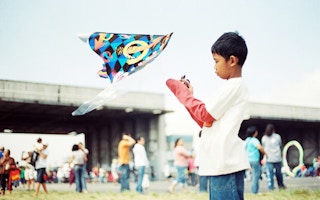From intercepting trafficking victims at the airport to helping survivors find jobs, a city-wide drive to combat the growing crime launched on Friday in Angeles, in the Philippines.
Police, prosecutors, charities, and government and aviation officials in the city are joining forces to boost support for victims and educate people to prevent them being trafficked.
Angeles—north of the capital Manila—is considered a trafficking hotspot in the Southeast Asian country. Nearby Clark airport is a major travel hub and common entry and exit point for both traffickers and their victims, according to activists.
“From giving shelter to providing livelihood projects for victims, we must all work hand-in-hand to eradicate human trafficking,” Angeles government official Purita David told the Thomson Reuters Foundation.
The anti-trafficking partnership - made up of a dozen groups - also aims to engage children at school and in vulnerable communities, and work with local leaders to raise awareness.
“
From giving shelter to providing livelihood projects for victims, we must all work hand-in-hand to eradicate human trafficking.
Purita David, Angeles City government
While similar initiatives have been adopted in other parts of the country, including the capital, the one in Angeles is the most comprehensive to-date, said the Visayan Forum Foundation.
“We need to be proactive and focus on prevention to break the cycle of trafficking,” said Cecilia Flores-Oebanda, the founder and head of the Manila-based anti-trafficking charity.
“We see a lot of raids and rescues … but the culture has not changed and people need to be aware of the crime,” she said.
Rights groups say the Philippines is a huge regional hub for human trafficking.
Victims include domestic workers being exploited and enslaved overseas, as well as a booming sex industry inside the country - from forced prostitution to cybersex child trafficking, whereby victims are abused over livestreams.
About 400,000 people in the country - or one in 250 of the population - are estimated to be trapped in modern slavery, found the 2016 Global Slavery Index by the Walk Free Foundation.
Yet the Philippines is the only nation in the region to have received the top ranking for efforts to combat the crime in the United States government’s “Trafficking in Persons” report for two consecutive years, local officials said at the launch event.
The partnership in Angeles would send out a strong message to traffickers who have long acted with impunity, said Alexander Cauguiran, the chief executive of Clark International Airport.
“Trafficking will not be tolerated in Clark … and soon hopefully not anywhere else in the country either,” he added.
This story was published with permission from Thomson Reuters Foundation, the charitable arm of Thomson Reuters, that covers humanitarian news, women’s rights, trafficking, property rights, climate change and resilience. Visit http://news.trust.org.










